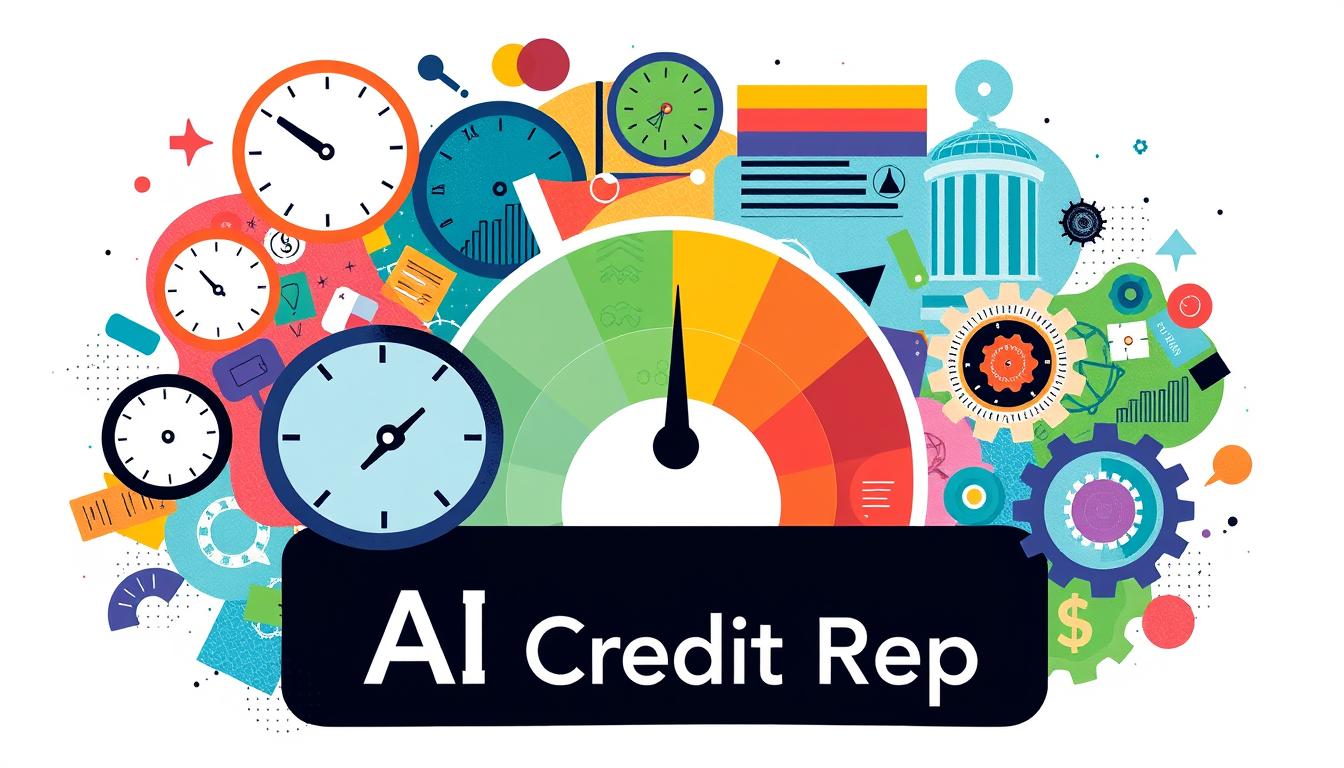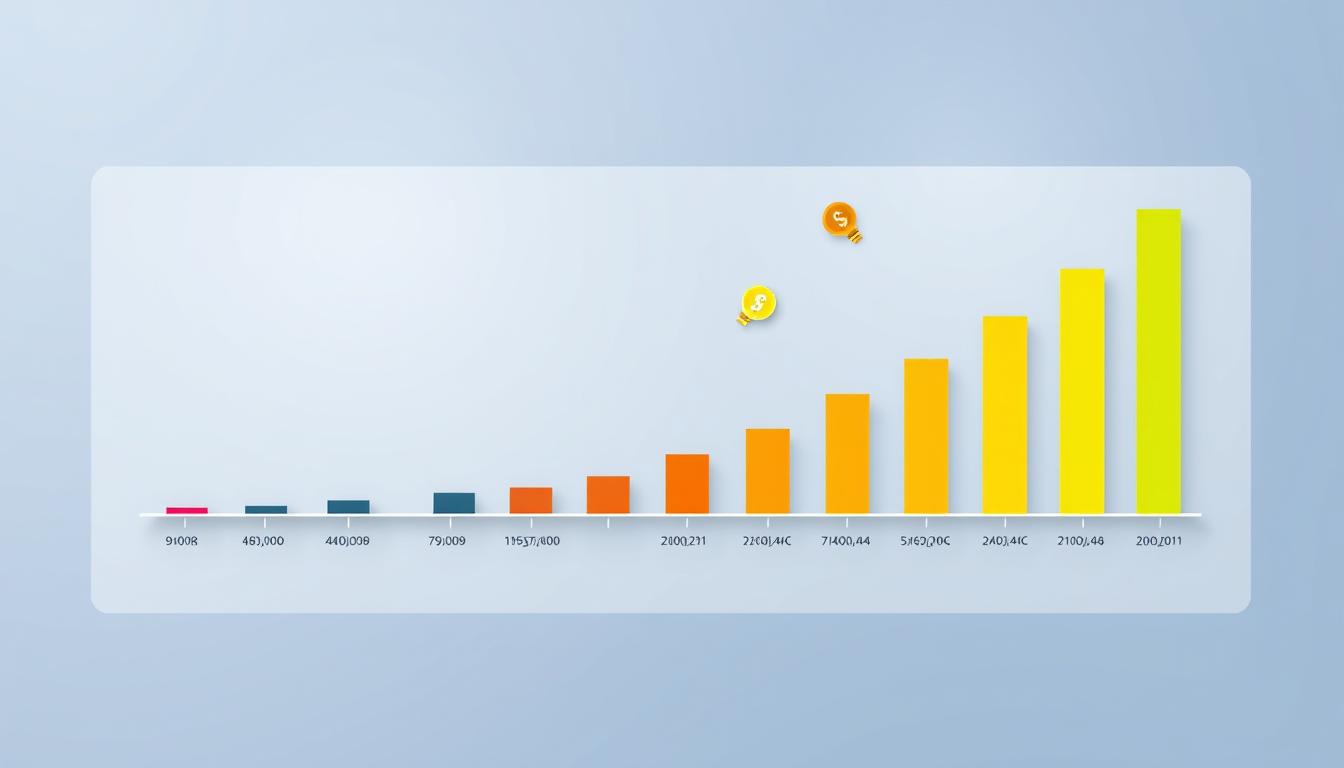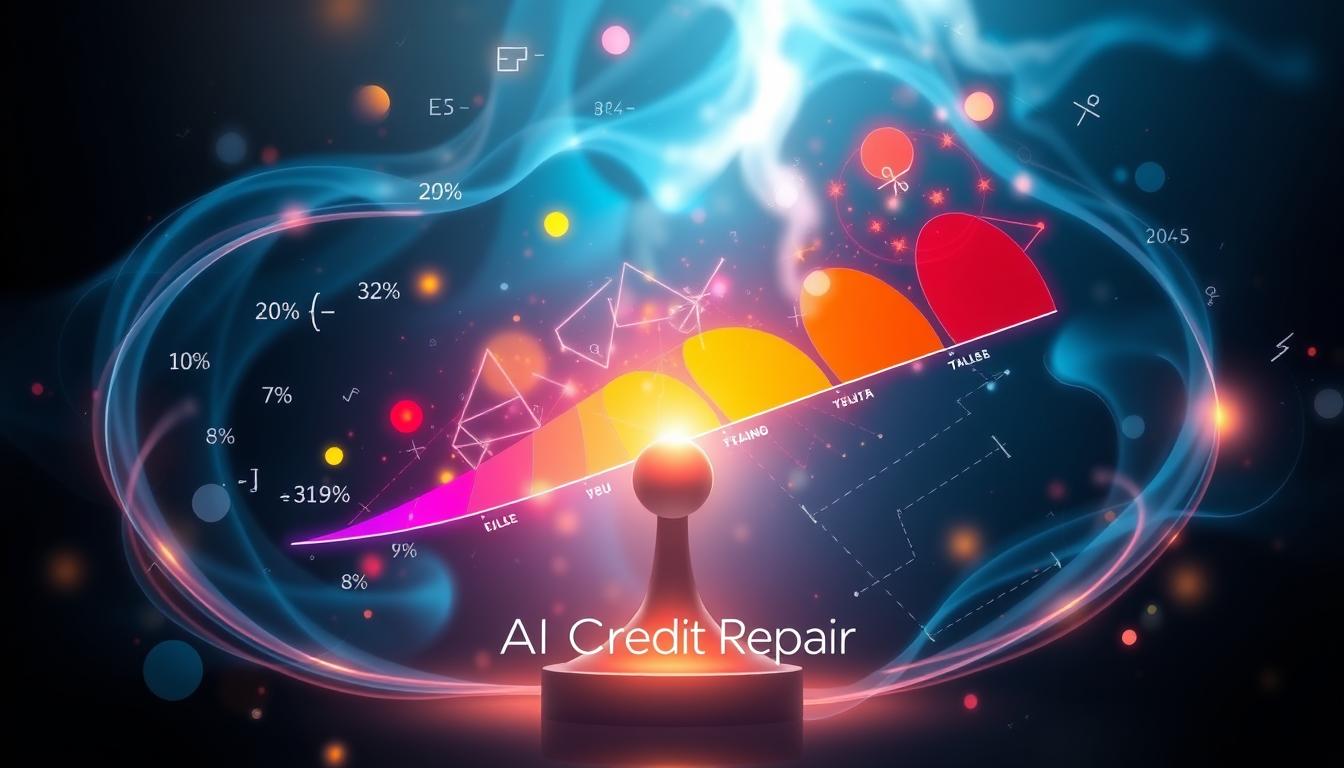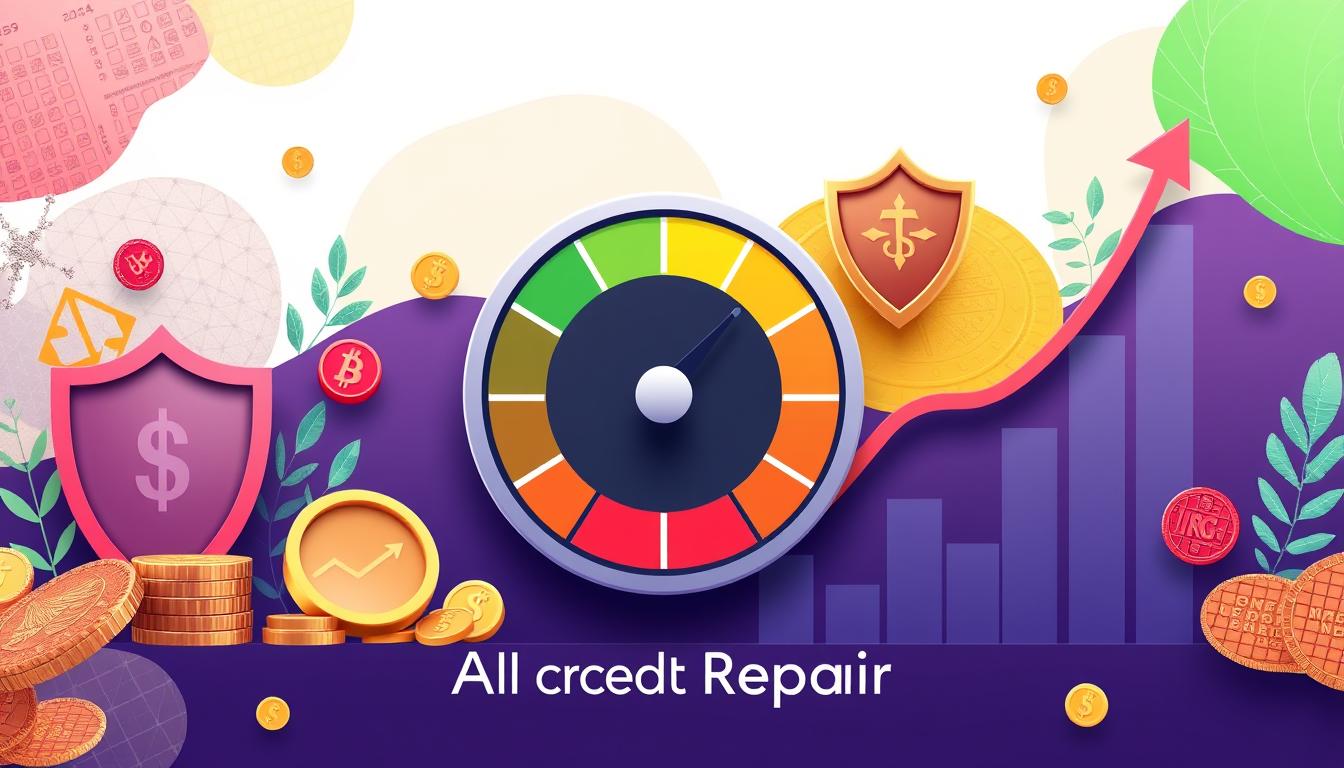Your credit score plays a vital role in your financial life. Lenders use the middle credit score to assess your creditworthiness. Let’s explore its importance, calculation, and why maintaining a good score matters.
The middle credit score is the average of three major credit bureau scores. These bureaus are Experian, Equifax, and TransUnion. A good credit score typically falls between 700 and 850.
Several factors affect your credit score. These include payment history, credit use, credit history length, and types of credit. A good score can lead to better loan approvals and lower interest rates.
Key Takeaways
- The middle credit score is the average of your credit scores from the three major credit bureaus: Experian, Equifax, and TransUnion.
- A good credit score range is generally considered to be between 700 and 850, with higher scores indicating a lower risk to lenders.
- Factors that affect your credit score include payment history, credit utilization, credit history length, and types of credit used.
- Maintaining a good credit score can lead to better loan and credit card approvals, lower interest rates, and fewer fees.
- Strategies to improve your credit score include paying bills on time, keeping credit card balances low, and monitoring your credit report for errors.
Understanding Credit Scores
Credit scores are vital to your financial profile. They show how creditworthy you are. These scores come from factors like payment history and credit use.
Knowing credit score ranges and factors can boost your financial health. It’s key to managing your money well.
Credit Score Ranges
Credit scores usually fall between 300 and 850. Higher scores mean less risk for lenders. FICO and VantageScore are the main credit scoring models.
Here’s a breakdown of credit score ranges:
- Excellent: 800 to 850
- Good: 700 to 799
- Fair: 600 to 699
- Poor: 500 to 599
- Very Poor: 300 to 499
Factors Affecting Credit Scores
Your credit score depends on several key factors:
- Payment History: Your record of on-time payments for credit cards and loans.
- Credit Utilization: The ratio of your credit card balances to your credit limits.
- Length of Credit History: How long you’ve had credit accounts.
- Credit Mix: The variety of credit accounts you have.
- New Credit: Recent credit applications or new accounts opened.
Knowing these credit score factors helps you make smart choices. You can improve and maintain a healthy credit report and credit score.

What Is the Middle Credit Score?
The median credit score is a key metric in understanding the credit landscape. It represents the middle point of credit score distribution. This score offers more accurate insights than the average score, which can be affected by extreme values.
The current median credit score in the United States is 711. This means half of the population has a higher score, and half has a lower score. The average credit score is slightly higher at around 730.
Credit score distribution shows the variety of credit profiles among people. The median of 711 indicates many have good credit standing. However, the range of scores reflects different financial situations and credit histories.
| Credit Score Range | Percentage of Population |
|---|---|
| 800-850 | 21% |
| 740-799 | 21% |
| 670-739 | 20% |
| 580-669 | 17% |
| 500-579 | 8% |
| 499 or below | 13% |
Knowing the median credit score helps people assess their financial position. It allows them to make smart choices about managing their credit. This knowledge is vital for improving one’s financial health.

Importance of a Good Credit Score
Your credit score greatly affects your financial health. It can help you get better loans and credit cards. A good score often means lower interest rates and fees.
Understanding credit scores is key to reaching your money goals. It’s crucial to keep your credit profile strong. This can open doors to better financial opportunities.
Loan and Credit Card Approvals
Lenders use your credit score to judge loan applications. A high score shows you handle debt well. It makes you more likely to get loans and cards.
People with good credit scores often get better terms and lower interest rates. A poor credit score can lead to loan denials. It might also result in higher interest rates.
Interest Rates and Fees
Your credit score affects interest rates and fees on financial products. Higher credit scores usually mean lower interest rates. This can save you lots of money over time.
People with lower credit scores often face higher interest rates and additional fees. This makes borrowing more expensive for them. It can add up to thousands of dollars over time.
| Credit Score Range | Impact on Interest Rates | Impact on Fees |
|---|---|---|
| Excellent (800-850) | Lowest interest rates | Lowest fees |
| Good (700-799) | Competitive interest rates | Moderate fees |
| Fair (600-699) | Higher interest rates | Higher fees |
| Poor (500-599) | Highest interest rates | Highest fees |
A good credit score helps you get better loan and card terms. It also lowers your interest rates and fees. Keeping a healthy credit profile can boost your overall financial health.
Calculating the Middle Credit Score
The middle credit score is vital for assessing creditworthiness. Three major agencies – Experian, Equifax, and TransUnion – determine this score. They use complex credit score models and formulas to calculate it.
The credit score formula considers various factors in your credit history. These include payment history, credit use, and length of credit history. The formula combines these factors to create a score between 300 and 850.
To find the middle score, arrange the three agency scores in order. Then, select the middle value. Lenders use this score to make decisions about loans and interest rates.
| Credit Reporting Agency | Credit Score |
|---|---|
| Experian | 730 |
| Equifax | 720 |
| TransUnion | 725 |
In this example, the middle credit score is 725. It’s the median value among the three agency scores.

Knowing how the credit score formula works is key to improving your credit. It can help you access better financial terms. Understanding this process is crucial for managing your creditworthiness.
Strategies to Improve Your Credit Score
A better credit score opens doors to great financial opportunities. You can get better loan terms and exclusive credit card offers. Here are some steps to boost your creditworthiness.
Payment History
Your payment history greatly affects your credit score. Paying on time shows lenders you’re responsible. It’s a key factor in your creditworthiness.
To keep a strong payment history, try these tips. Set up automatic payments or reminders. Talk to creditors if you’re having trouble paying. Check your credit reports often for errors.
Credit Utilization
Your credit utilization ratio is another important factor. It shows how much available credit you’re using. Keeping it below 30% can boost your score.
To lower your credit utilization, try these methods. Pay down your credit card balances regularly. Ask for credit limit increases from card issuers. Keep unused credit cards open.
- Regularly pay down your credit card balances to keep them well below your credit limits.
- Consider requesting credit limit increases from your card issuers to lower your overall utilization ratio.
- Avoid closing unused credit cards, as this can inadvertently increase your utilization ratio.
These key strategies can help improve your credit score. Building good credit takes time and effort. But the rewards are worth it.

Common Myths About Credit Scores
Credit scores play a crucial role in financial decisions. However, many myths surround them. Let’s explore some common misconceptions and uncover the truth about credit scores.
Myth: Checking Your Credit Score Lowers It
Checking your own credit score doesn’t lower it. This action is a “soft” inquiry. It has no impact on your credit score.
Myth: Closing Credit Cards Improves Your Score
Closing unused credit cards doesn’t always improve your credit score. It can actually lower your credit utilization ratio. This ratio is a key factor in determining your credit score.
Myth: Paying Off Debt Instantly Boosts Your Score
Paying off debt is good, but it doesn’t instantly boost your credit score. The impact takes time to reflect. Lenders need to update your credit report first.
Understanding credit score facts helps you make informed financial decisions. It’s crucial for your overall financial health.
Knowing these credit score misconceptions can help you build a healthy credit score. A good score opens doors to better financial opportunities.
Best Practices for Maintaining a Healthy Credit Score
A healthy credit score is crucial for good financial standing. It helps you access better loan terms and interest rates. Here are some best practices to manage your credit score effectively:
- Monitor Your Credit Report Regularly: Check your credit report from the three major bureaus yearly. This helps spot errors that could affect your credit score.
- Pay Bills on Time: Payment history is the biggest factor in your credit score. Pay all bills, including credit cards and loans, on time every month.
- Keep Credit Utilization Low: Maintain a low credit utilization ratio. Experts suggest keeping it below 30% for a healthy credit score.
- Limit Hard Credit Inquiries: Avoid applying for too many new credit accounts at once. Each application can temporarily lower your credit score.
- Diversify Your Credit Mix: Have different types of credit. This shows lenders you can manage various credit types responsibly.
These practices help you maintain credit score and develop healthy credit habits. They’re key to effective credit score management.
| Best Practices | Benefits |
|---|---|
| Monitor Credit Report Regularly | Identify and correct errors, stay informed about your credit standing |
| Pay Bills on Time | Maintain positive payment history, a key factor in credit score calculation |
| Keep Credit Utilization Low | Demonstrate responsible credit management, avoid negatively impacting credit score |
| Limit Hard Credit Inquiries | Minimize temporary drops in credit score due to multiple credit applications |
| Diversify Credit Mix | Show lenders your ability to manage different types of credit responsibly |
These best practices for maintaining a healthy credit score are essential. They help you maintain credit score and develop healthy credit habits.
Effective credit score management is key to achieving your financial goals. By following these tips, you’ll be on the right track.
Resources for Monitoring and Understanding Credit Scores
A healthy credit score is vital for financial well-being. Various tools and websites can help you monitor and understand your credit score.
Credit Reporting Agencies
Experian, Equifax, and TransUnion are the three major credit reporting agencies. They offer access to your credit report and credit score through their websites.
These platforms let you track your credit score, dispute errors, and get advice for better financial health.
Educational Resources
- The Consumer Financial Protection Bureau (CFPB) website explains credit score basics. It covers score calculation and tips for building good credit.
- The Federal Trade Commission (FTC) offers guides on managing your credit report and credit score.
- Websites like Nerdwallet and The Balance provide articles and tools for credit monitoring.
Credit Monitoring Services
Paid services offer regular updates, alerts, and credit-building help. These subscriptions provide insights and peace of mind for managing your finances.
| Service | Key Features | Pricing |
|---|---|---|
| Credit Karma | Free credit monitoring, credit score tracking, and personalized recommendations | Free |
| IdentityForce | Credit monitoring, identity theft protection, and insurance coverage | $17.95 per month |
| Experian IdentityWorks | Experian credit report and score monitoring, identity theft insurance, and dark web monitoring | $9.99 per month |
Using these credit score resources helps you stay on top of your financial health. You can make smart choices to keep your credit score strong.
Conclusion
We’ve explored the middle credit score’s importance and calculation. A good credit score is crucial for favorable loans and financial health.
Understanding credit score ranges helps you grab better financial chances. Consistent payments, smart credit use, and active management build a strong profile.
Regular credit score checks can keep your finances healthy. Address any issues quickly. Use the tips here to boost your middle credit score.

